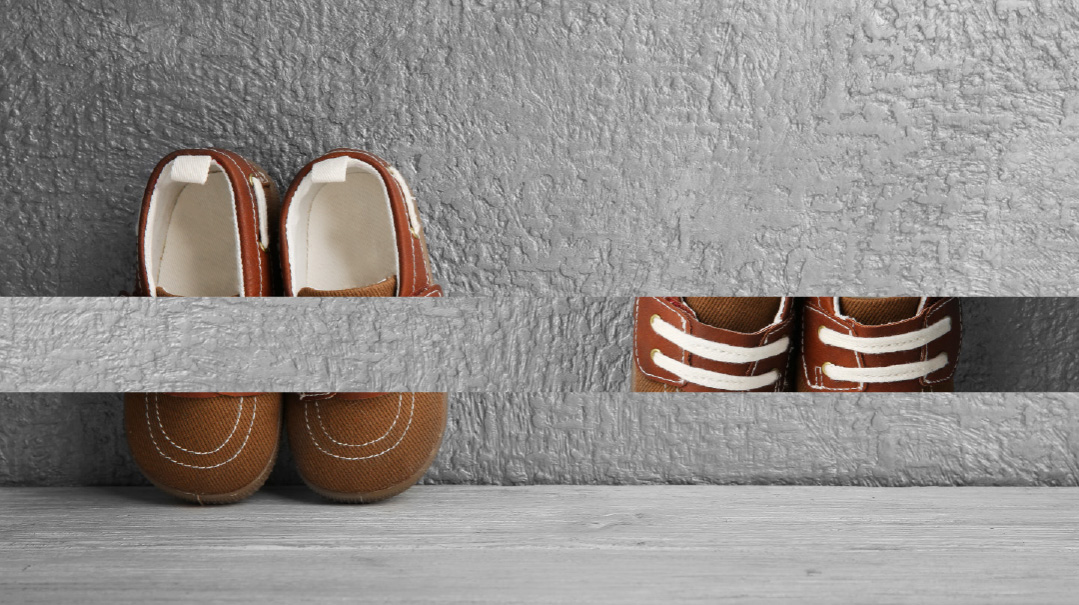Stepping Aside

In the spirit of V’nahafoch hu, Mishpacha contributors share the axioms they were sure of…until they weren’t

As told to Yael Schuster
Chani Juravel
Rockland County, New York
I always thought a child’s behavior confirms his parents’ success or failure. Until I learned that…
I
opened the door to the shoe store and took in the pre-Pesach mayhem. Hundreds of kids milling around (that’s how it seemed to me, at least), thigh-high stacks of boxes, shoes missing their partners scattered about — this was a disaster waiting to happen.
And good son that he is, my precious four-year-old didn’t let me down. It started almost immediately.
“I don’t want to be here! This is stupid! I hate this store!”
“I know it’s hard, honey, but sometimes we have to wait to get something special for Yom Tov,” I tried.
“There’s nothing special here, I don’t even like any of these shoes!”
The volume began to creep up. Next thing I knew, he was struggling mightily to open the heavy door and escape. As I guided him back to our spot, his howls sucked all the air out of the room.
It had officially become “a scene,” and it just got worse, each torturous minute an hour. All my cajoling and attempts at reason went nowhere. I was sure that all eyes in the store were on me, the Dysfunctional Mother. (Did they have no shame for staring?) Everywhere I looked, serene mothers sat surrounded by four, six, eight patient, obedient, normal children. What I didn’t see was a place to bury myself. Too bad.
To my mind, young mother that I was, there was only one logical conclusion: I was clearly missing some basic skill required of parents. Everyone can see that I have no clue what I’m doing. What right do I have to have children if I can’t keep even minimal control of them in public? Maybe I should call it a day, I’m just not cut out for mothering.
The wait felt as long as my life, and then it was our turn.
“Come, let’s try on this cute shoe,” the owner of the store said (apparently no other salesperson would come near us).
“I don’t want that yucky shoe!”
“If you try it on, I’ll give you a lollipop,” she tried valiantly.
“I don’t want your stupid lollipop, I can get my own!” my son rejoined. I almost felt the roof shake.
We somehow made it through the fitting, and I went to pay. The store owner rung up my bill, and then looked me in the eye.
“Chani, you did good,” she said. “You really held it together.”
“Haha, that’s kind,” I retorted.
But she meant it. And then she added this profound comment: “Who our kids are is not in our control, but who we are with them is everything. You did good.”
This was a watershed moment for me. From then on, during countless colorful parenting moments, I’d conjure up her words and feel the sincerity of her reassurance. I’d close my eyes and remind myself: Chani, it’s not all about you. It’s not all your fault that this kid is the way he is, and this is not all a reflection of your parenting. No reason to beat yourself up, here. Just handle it as well as you can, and then be proud that you did. And it helped so much. It kept me breathing.
I am so grateful for that seemingly simple dose of wisdom, and sharing it with others is an important part of my therapy practice. Parents of all sorts of difficult children struggle universally with the very human belief that their child’s behavior is a testament to their incompetence. It’s empowering for them to understand that the type of kids we get isn’t our choice — their neshamos are perfectly bashert to us — and we are defined only by whom we choose to become through the experience of raising them.
I see the relief this brings them and think of a young mother in a shoe store.
Chani Juravel LCSW is a popular lecturer and therapist in private practice treating individuals and couples both virtually and in her Rockland County office. She is the author of Sefirah in Our Lives, a manual on relationships.
(Originally featured in Mishpacha, Issue 902)
Oops! We could not locate your form.





